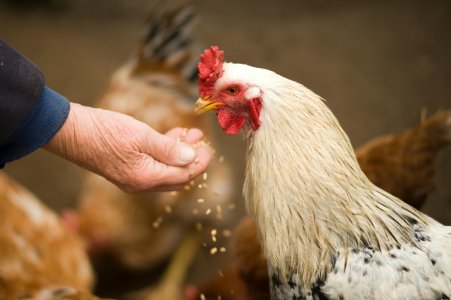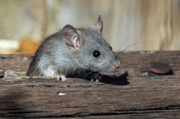State of emergency declared as deadly outbreak hits US farms
By
Aubrey Razon
- Replies 0
A quiet crisis is threatening the heart of America’s farmland. A state of emergency has been declared as diseases spread through Midwestern farms.
What does this mean for the food on your table?
Minnesota, a state known for its robust agricultural industry, has declared a state of emergency as it grapples with a series of devastating diseases striking at the core of Midwestern farms.
The culprits? Avian metapneumovirus (aMPV), highly pathogenic avian influenza (HPAI), and the H5N1 flu virus.
These aren't just any illnesses; they're formidable foes that have led to the Rural Finance Authority Board's decision to declare an emergency.

aMPV, a highly infectious respiratory disease, has been wreaking havoc on poultry, leading to weakened immune systems, secondary infections, and high mortality rates.
Since April 2024, Minnesota has reported 871 positive tests for aMPV, and health officials warn that this is likely an undercount.
HPAI, a viral disease that's both contagious and fatal, has posed a major threat to the poultry industry.
In Minnesota alone, there have been 185 confirmed cases since March 2022, impacting over 9 million domestic birds, predominantly turkeys.
The H5N1 strain, also known as avian influenza or bird flu, shares the same virus as HPAI but has broader implications, affecting not only poultry but also dairy cows and potentially other animals.
The bird flu strains have even made the jump to humans.
A recent case in Nevada saw a dairy worker infected by a new type (D1.1) of the virus.
This development has raised alarms about the potential for a wider outbreak affecting human health.
Also read: Is a new bird flu strain on the horizon? First human case from a dairy worker discovered.
Sam Scarpino, a health sciences expert at Northeastern University, has labeled the ongoing US bird flu outbreak as “serious.”
With multiple H5N1 strains circulating, the threat to both agriculture and human health is escalating.
In response to this agricultural emergency, Minnesota is offering a lifeline to its farmers.
The state's declaration of emergency unlocks access to zero-interest disaster recovery loans.
These funds are crucial for farmers facing livestock losses, allowing them to cover expenses not typically insured, such as flock replacement, building improvements, or lost revenue due to animal disease outbreaks.
Minnesota Agriculture Commissioner Thom Petersen has urged affected farmers to explore these zero-interest loans, emphasizing the importance of this support in helping them recover from the impact of these diseases.
While Minnesota takes steps to support its farmers, the implications of these outbreaks extend far beyond state lines.
As a key player in America's agricultural landscape, disruptions in Minnesota could lead to shortages and price hikes in poultry and dairy products nationwide.
Moreover, the potential for human infection underscores the need for vigilance and preparedness in our public health systems.
The appointment of Dr. Gerald Parker to the White House Office of Pandemic Preparedness and Response Policy signals a federal acknowledgment of the gravity of the situation.
Also read: Turkey steps up: A bold move to keep US egg supplies cracking!
As members of The GrayVine community, many of whom have witnessed the ebbs and flows of agricultural crises, it's essential to stay informed and proactive.
Here are some steps you can take:
1. Stay Informed: Keep up with the latest news on animal disease outbreaks and public health advisories.
2. Support Local: Whenever possible, buy from local farmers and producers who may not be affected by the outbreak.
3. Practice Good Hygiene: If you come into contact with livestock or live in affected areas, follow recommended hygiene practices to prevent the spread of diseases.
4. Engage with Policymakers: Advocate for strong agricultural and public health policies that protect our food supply and prevent future outbreaks.
Remember, while Minnesota's emergency declaration is a critical step for local farmers, it's a wake-up call for all of us.
By staying informed and engaged, we can help safeguard our food supply and protect our health and well-being.
 Have you noticed changes in your local grocery store or market? Are you concerned about how these outbreaks might affect your community?
Have you noticed changes in your local grocery store or market? Are you concerned about how these outbreaks might affect your community?
Share your thoughts and experiencesin the comments below. Let's come together to navigate these challenging times and ensure the safety and stability of our food supply.
What does this mean for the food on your table?
Minnesota, a state known for its robust agricultural industry, has declared a state of emergency as it grapples with a series of devastating diseases striking at the core of Midwestern farms.
The culprits? Avian metapneumovirus (aMPV), highly pathogenic avian influenza (HPAI), and the H5N1 flu virus.
These aren't just any illnesses; they're formidable foes that have led to the Rural Finance Authority Board's decision to declare an emergency.

Health officials and experts stress the seriousness of the H5N1 situation. Image source: Alex P/Pexels.
aMPV, a highly infectious respiratory disease, has been wreaking havoc on poultry, leading to weakened immune systems, secondary infections, and high mortality rates.
Since April 2024, Minnesota has reported 871 positive tests for aMPV, and health officials warn that this is likely an undercount.
HPAI, a viral disease that's both contagious and fatal, has posed a major threat to the poultry industry.
In Minnesota alone, there have been 185 confirmed cases since March 2022, impacting over 9 million domestic birds, predominantly turkeys.
The H5N1 strain, also known as avian influenza or bird flu, shares the same virus as HPAI but has broader implications, affecting not only poultry but also dairy cows and potentially other animals.
The bird flu strains have even made the jump to humans.
A recent case in Nevada saw a dairy worker infected by a new type (D1.1) of the virus.
This development has raised alarms about the potential for a wider outbreak affecting human health.
Also read: Is a new bird flu strain on the horizon? First human case from a dairy worker discovered.
Sam Scarpino, a health sciences expert at Northeastern University, has labeled the ongoing US bird flu outbreak as “serious.”
With multiple H5N1 strains circulating, the threat to both agriculture and human health is escalating.
In response to this agricultural emergency, Minnesota is offering a lifeline to its farmers.
The state's declaration of emergency unlocks access to zero-interest disaster recovery loans.
These funds are crucial for farmers facing livestock losses, allowing them to cover expenses not typically insured, such as flock replacement, building improvements, or lost revenue due to animal disease outbreaks.
Minnesota Agriculture Commissioner Thom Petersen has urged affected farmers to explore these zero-interest loans, emphasizing the importance of this support in helping them recover from the impact of these diseases.
While Minnesota takes steps to support its farmers, the implications of these outbreaks extend far beyond state lines.
As a key player in America's agricultural landscape, disruptions in Minnesota could lead to shortages and price hikes in poultry and dairy products nationwide.
Moreover, the potential for human infection underscores the need for vigilance and preparedness in our public health systems.
The appointment of Dr. Gerald Parker to the White House Office of Pandemic Preparedness and Response Policy signals a federal acknowledgment of the gravity of the situation.
Also read: Turkey steps up: A bold move to keep US egg supplies cracking!
As members of The GrayVine community, many of whom have witnessed the ebbs and flows of agricultural crises, it's essential to stay informed and proactive.
Here are some steps you can take:
1. Stay Informed: Keep up with the latest news on animal disease outbreaks and public health advisories.
2. Support Local: Whenever possible, buy from local farmers and producers who may not be affected by the outbreak.
3. Practice Good Hygiene: If you come into contact with livestock or live in affected areas, follow recommended hygiene practices to prevent the spread of diseases.
4. Engage with Policymakers: Advocate for strong agricultural and public health policies that protect our food supply and prevent future outbreaks.
Remember, while Minnesota's emergency declaration is a critical step for local farmers, it's a wake-up call for all of us.
By staying informed and engaged, we can help safeguard our food supply and protect our health and well-being.
Key Takeaways
- Minnesota has declared a state of emergency due to multiple strains of bird flu affecting farms.
- Farmers can access zero-interest disaster recovery loans to help with expenses not covered by insurance.
- Since April 2024, Minnesota has seen significant outbreaks of avian diseases, including avian metapneumovirus and highly pathogenic avian influenza.
- Health officials and experts stress the seriousness of the H5N1 situation, with risks to agriculture and potential for human infection being highlighted.
Share your thoughts and experiencesin the comments below. Let's come together to navigate these challenging times and ensure the safety and stability of our food supply.






